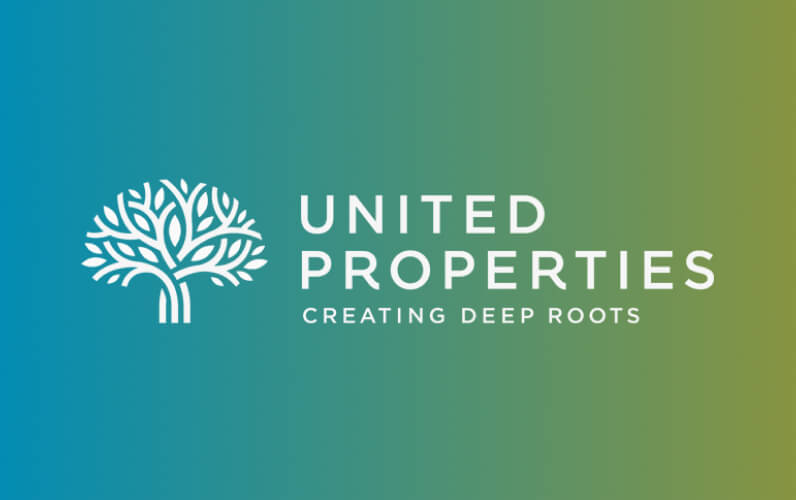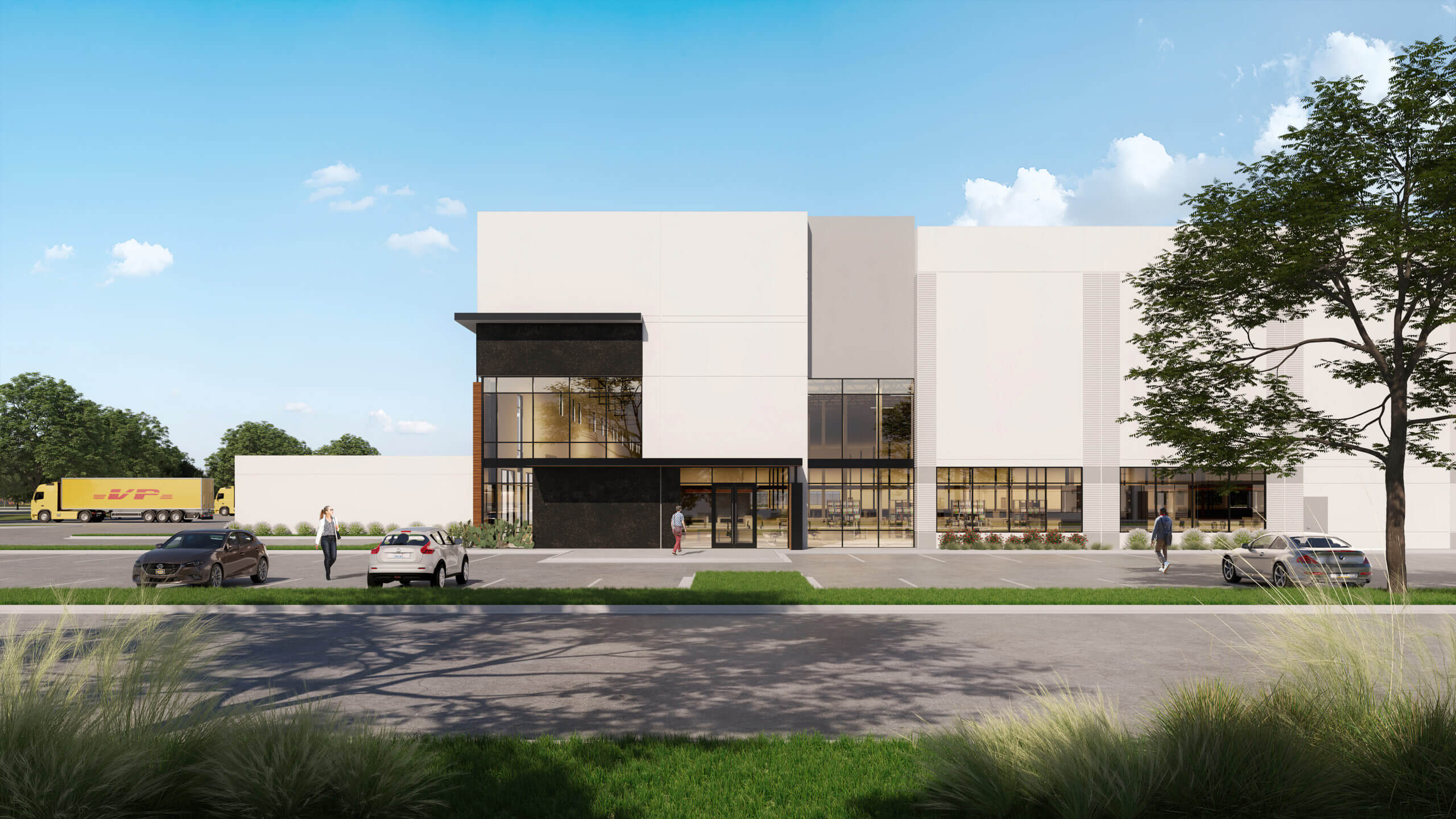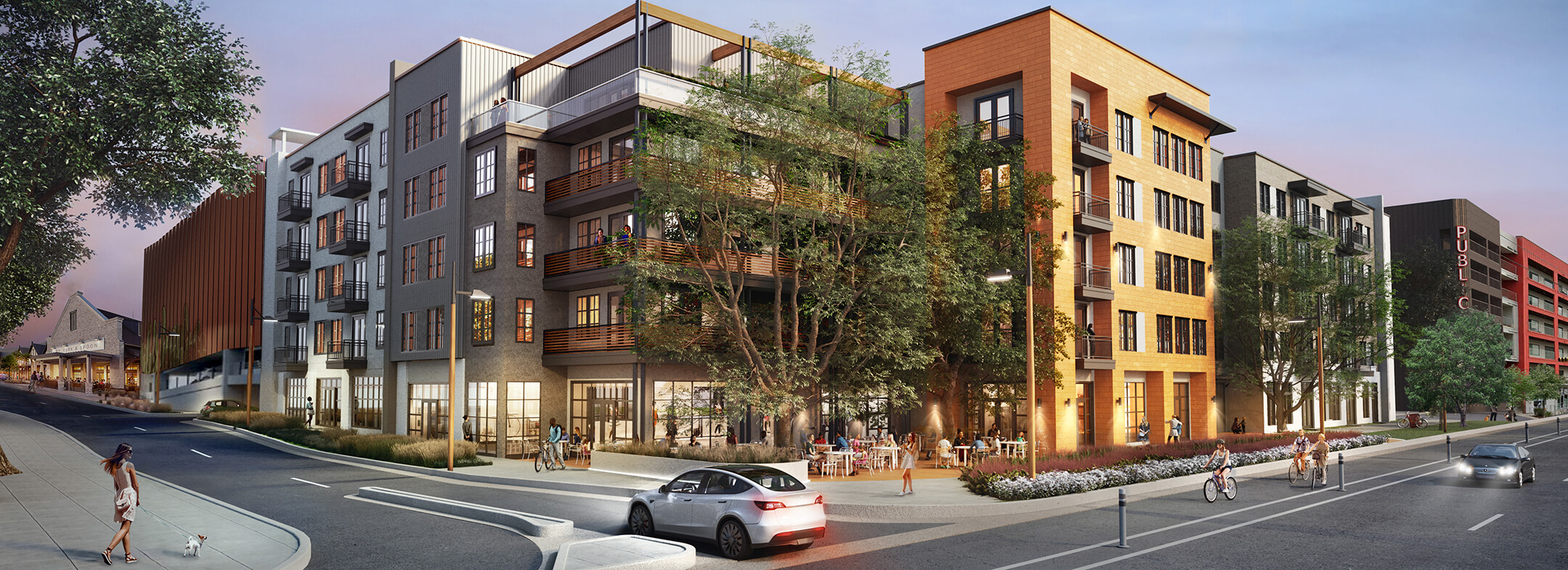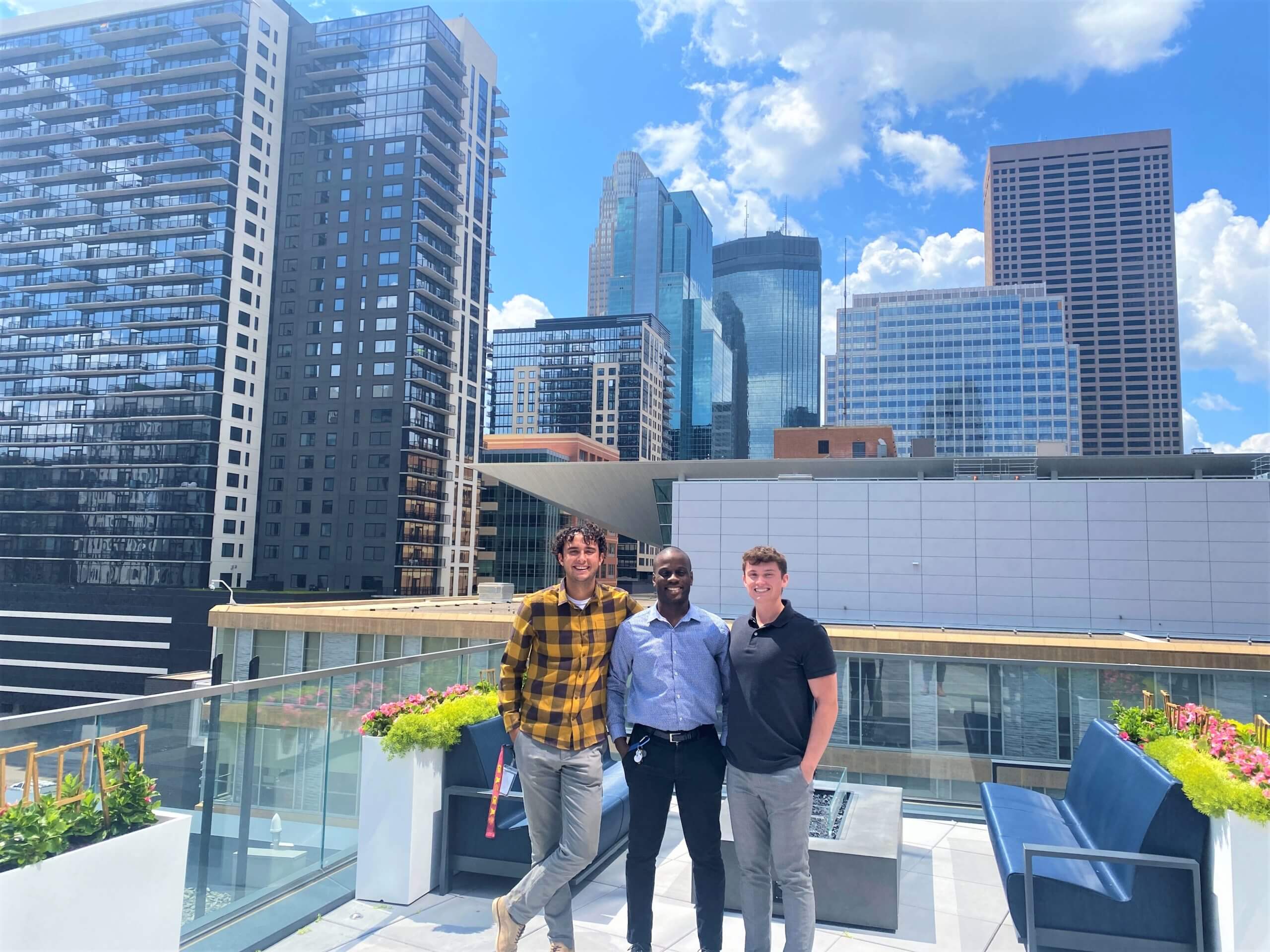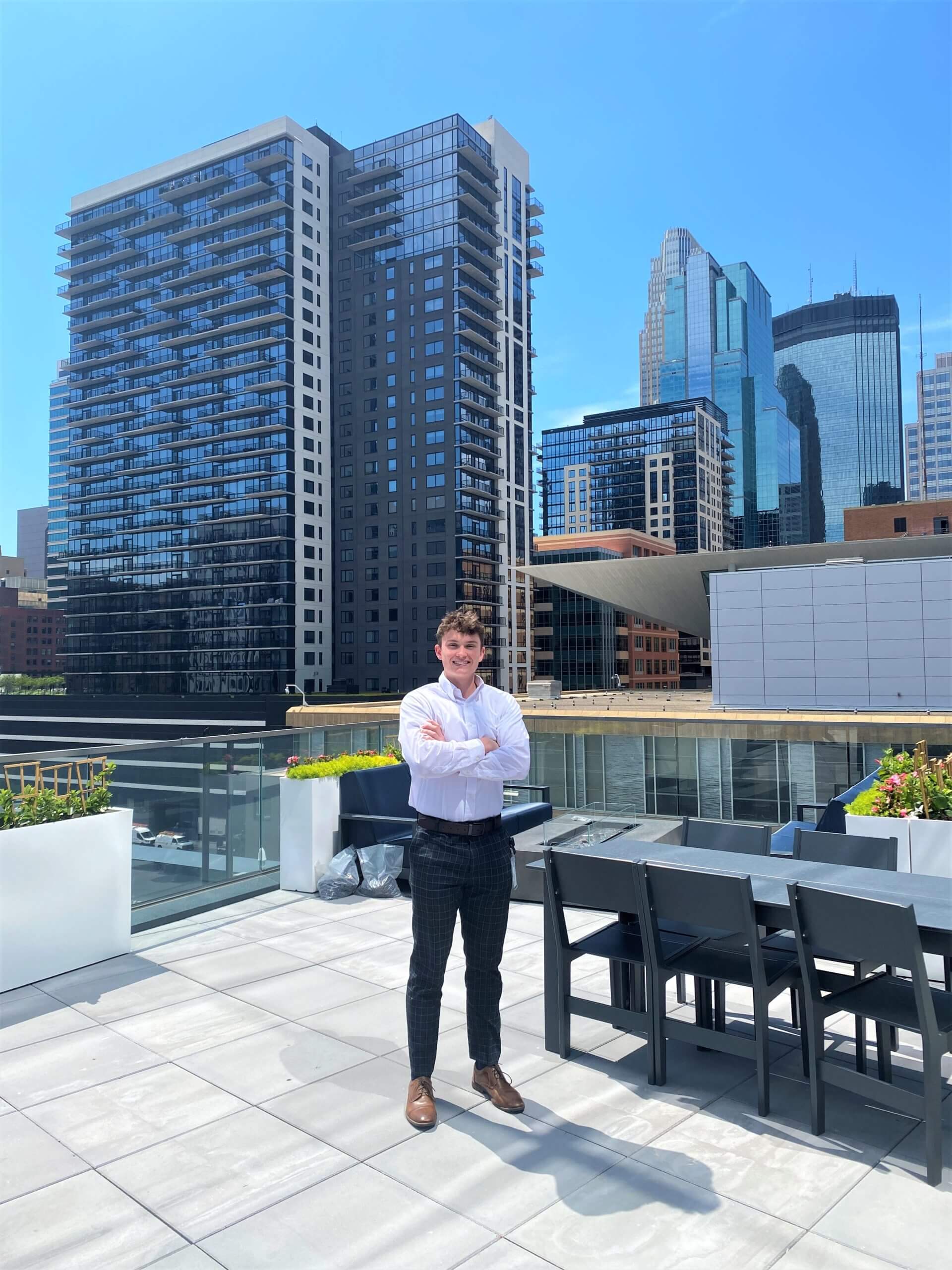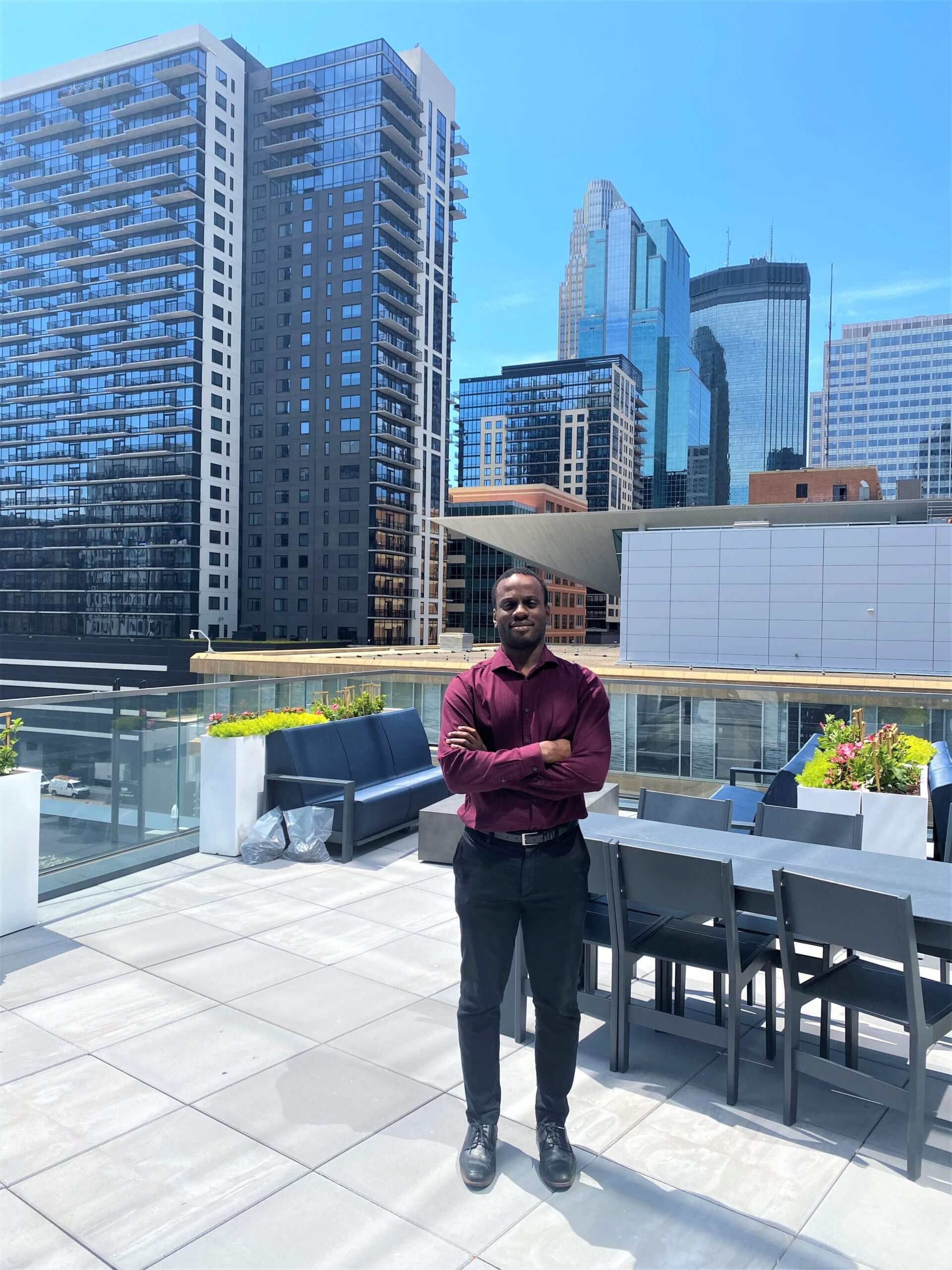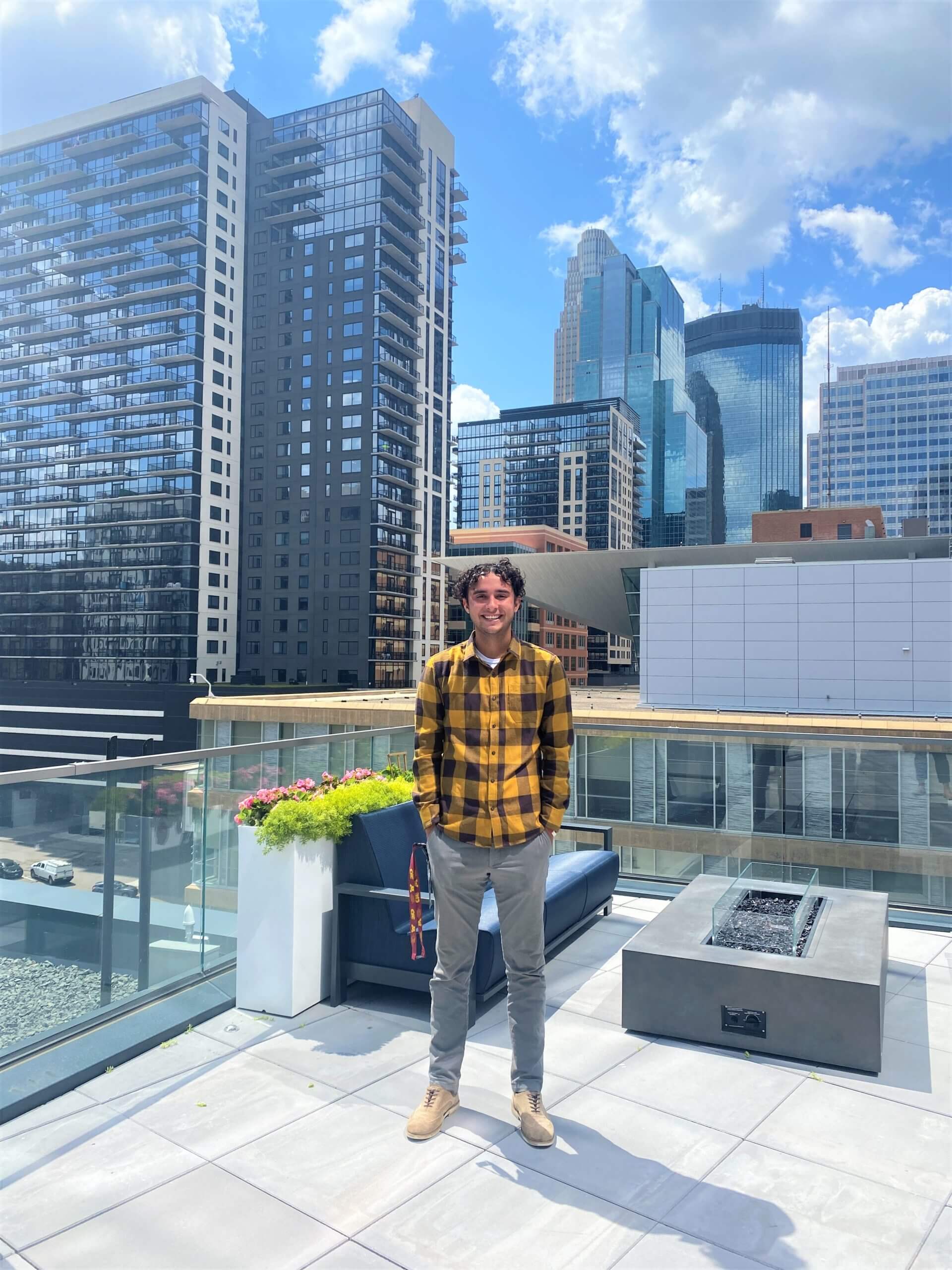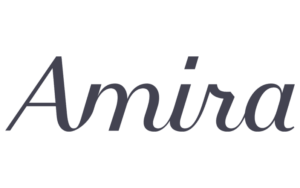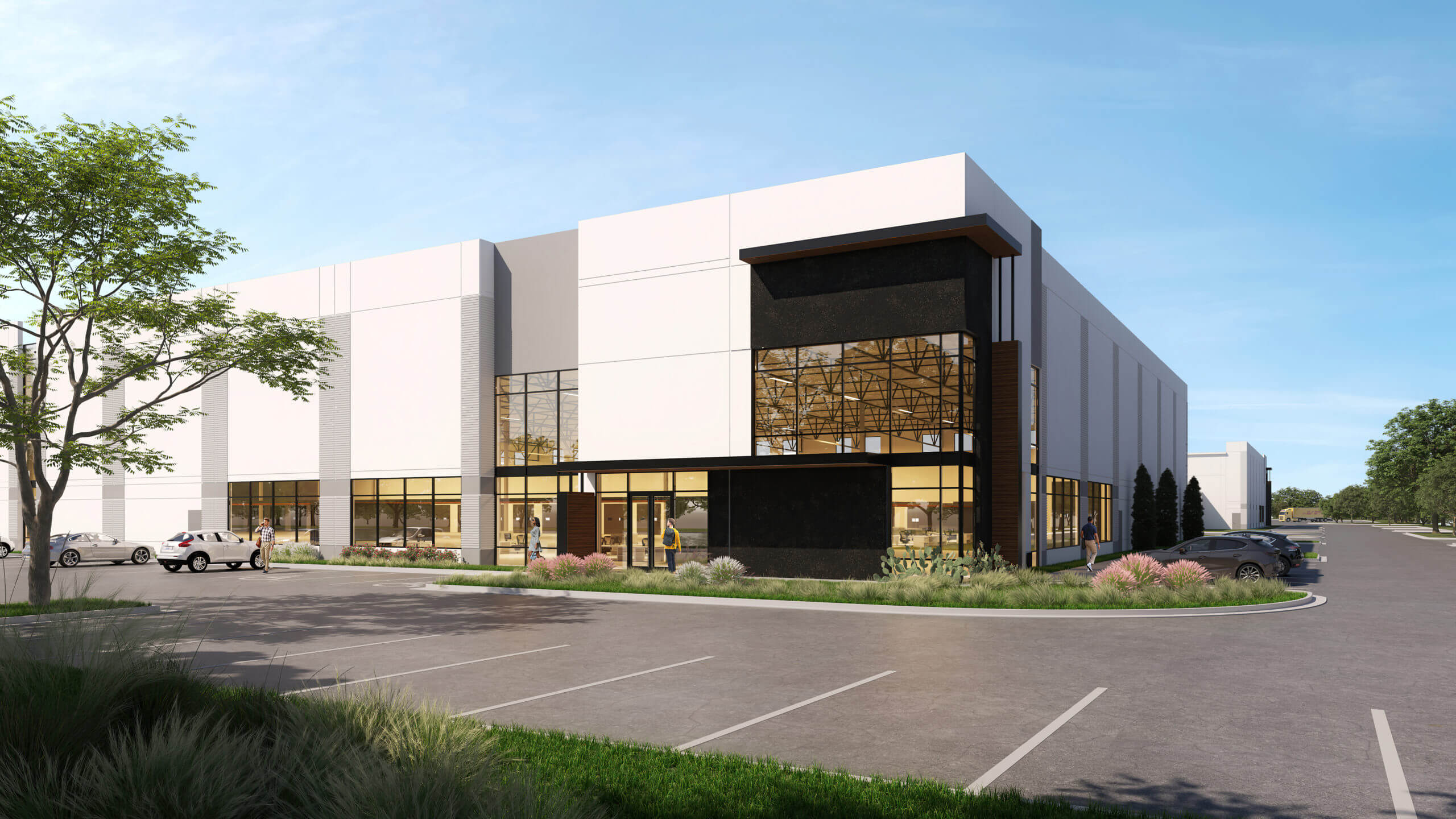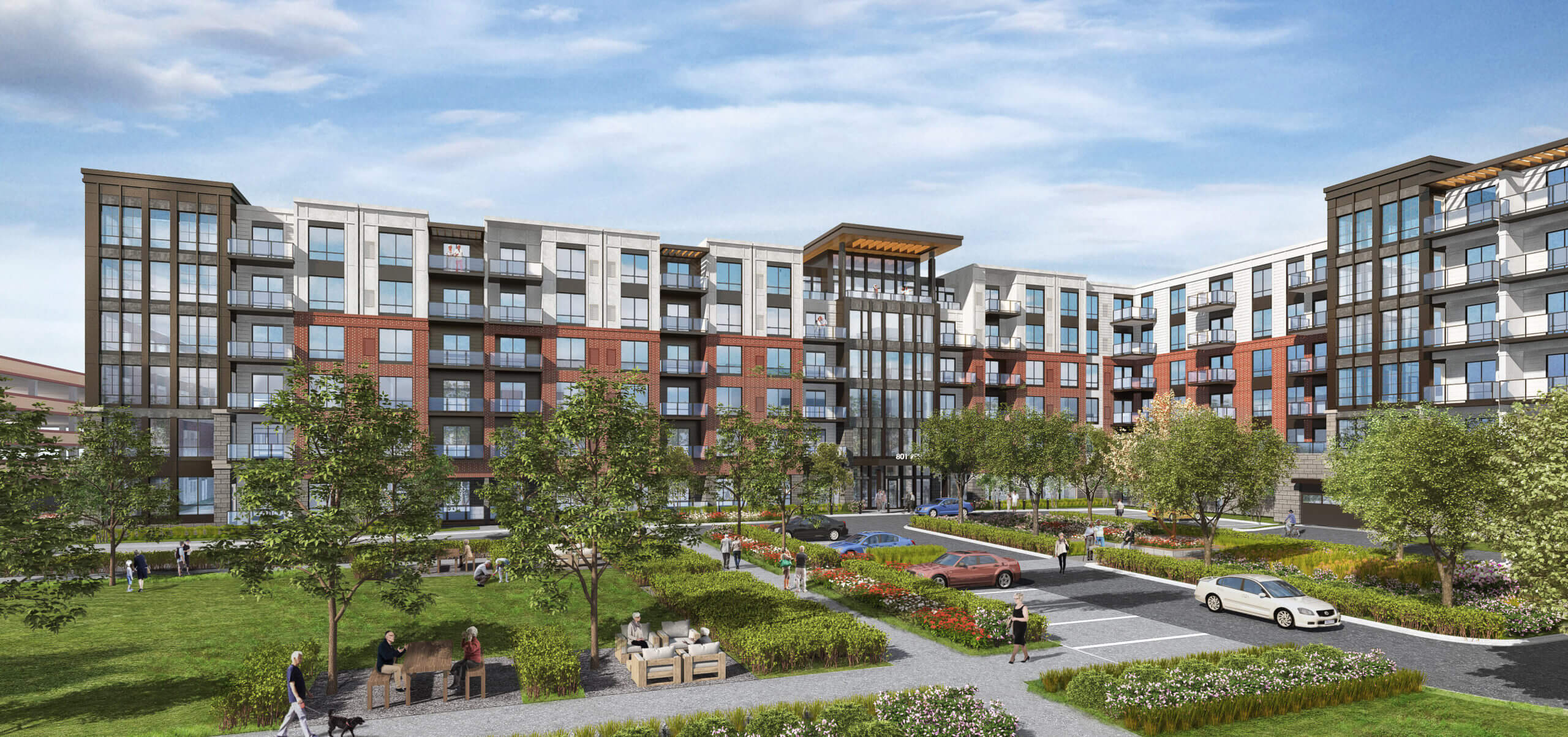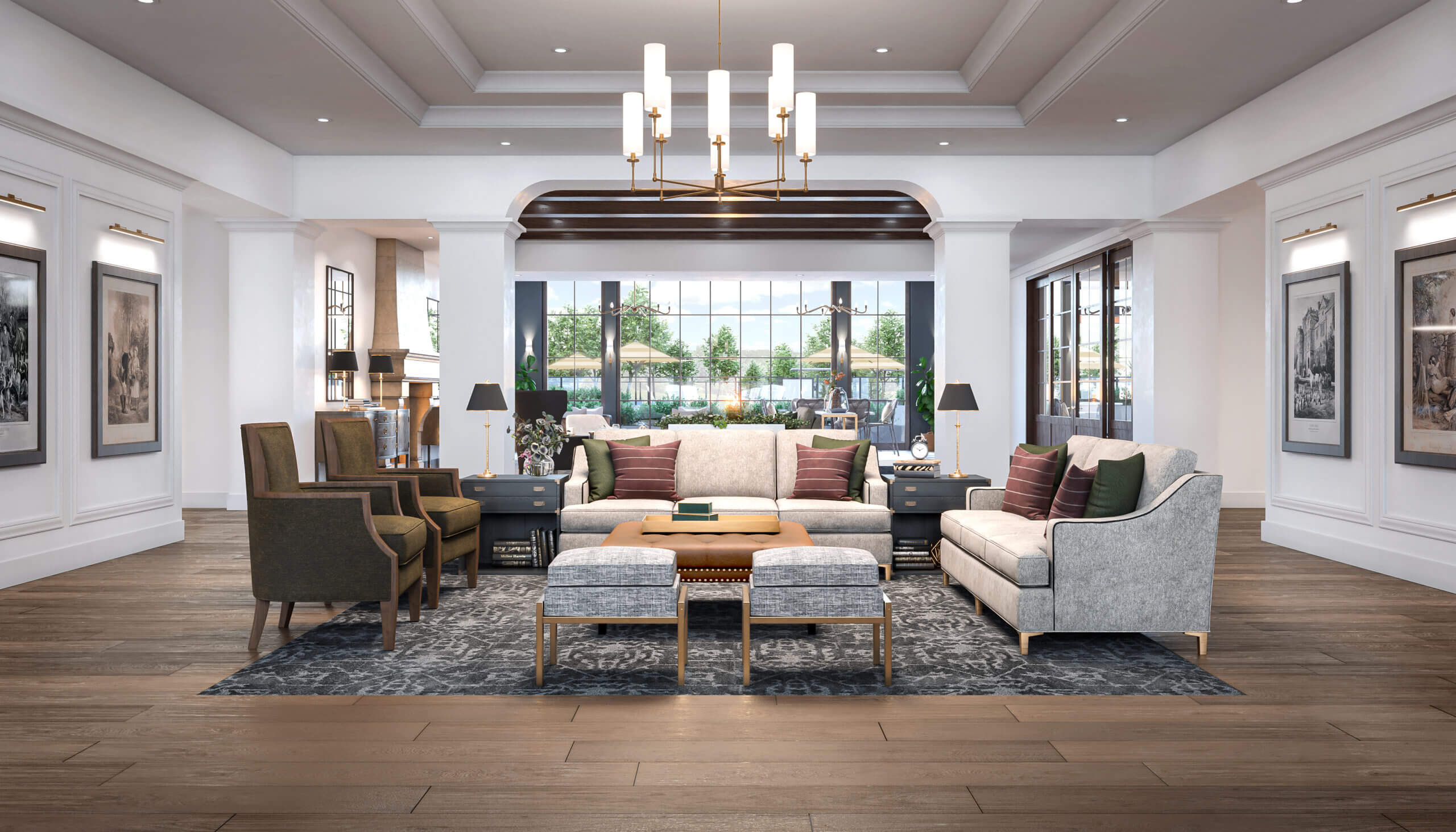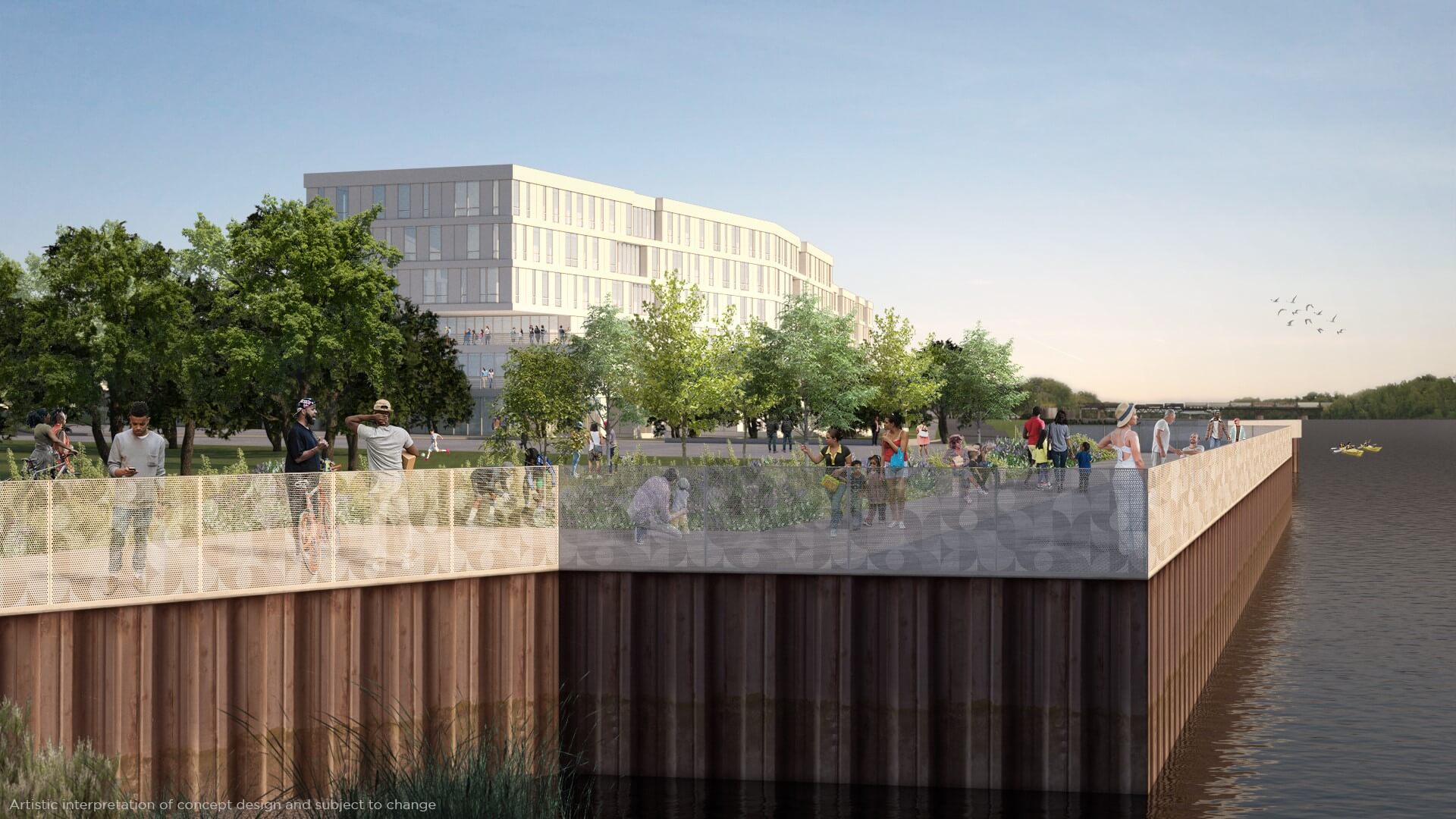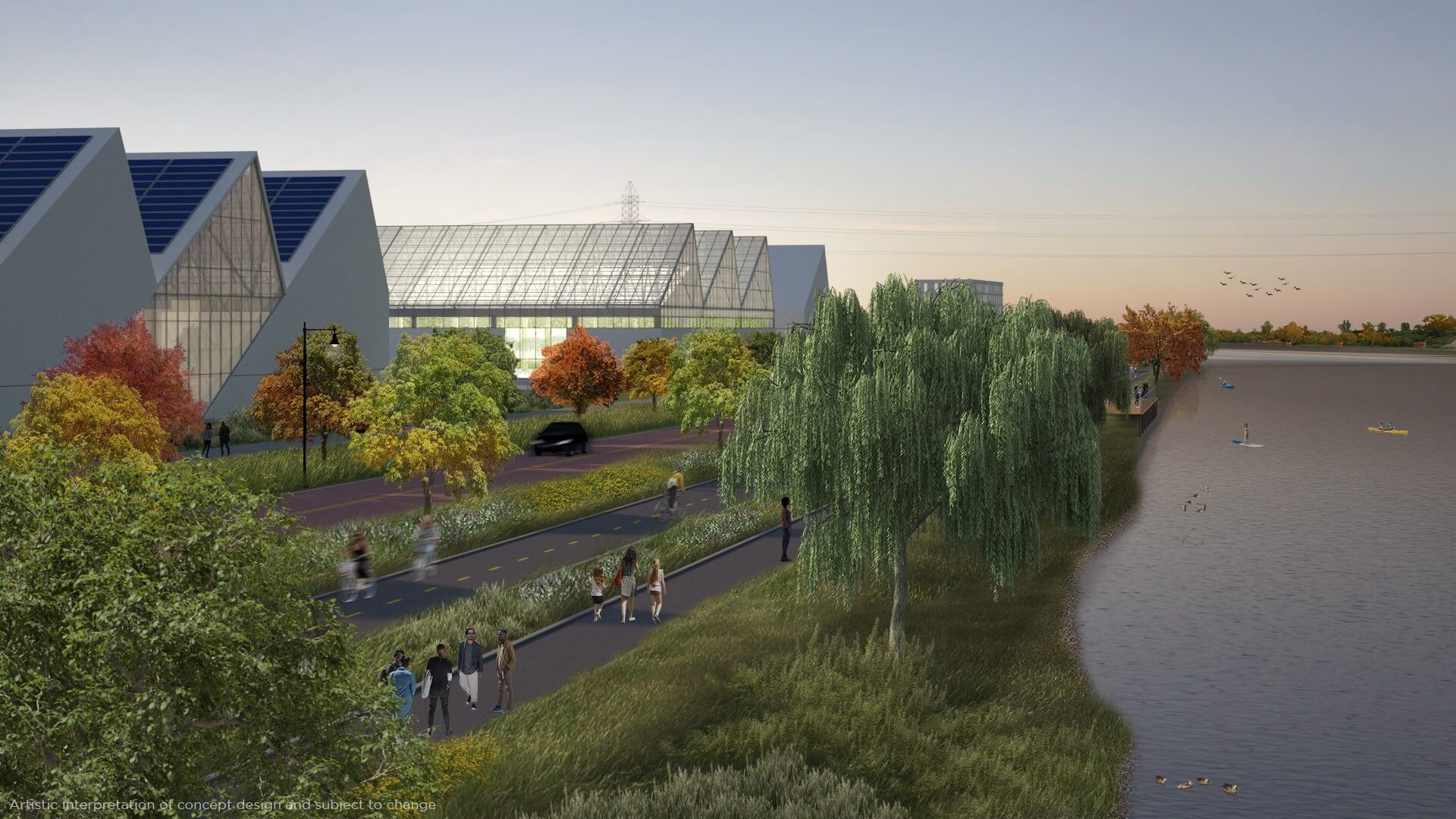AUSTIN, TEXAS (June 22, 2022) — The local office of United Properties, a Minneapolis-based real estate developer and investor, today announced Phase 1 at Buda Midway is 100% leased and will soon break ground on the second phase of its 70-acre Buda Midway industrial development, ultimately bringing over 850,000 sq. ft. of space to the market.
Phase 1 consists of three buildings totaling nearly 480,000 sq. ft. Building 1 is 115,090 sq. ft. and leased by CED Greentech and Sherri Hill. Building 2 is 115,090 sq. ft. and Building 3 is 244,240 sq. ft.; both are leased by Four Hands Furniture. Buildings 1 and 2 will be fully delivered this month and Building 3 will be completed in July.
“We have seen strong leasing demand for our first phase at Buda Midway from the modern tenant looking for premium amenities, energy-efficient spaces and a sophisticated aesthetic,” said Leigh Ellis, principal, AQUILA Commercial. “Beyond Buda Midway’s design attributes, its sought-after location being only one exit south of Austin has played a major role in pre-leasing efforts. We are grateful to the City of Buda who worked with us from the start to recruit top-notch tenants to the area.”
Phase 2 of Buda Midway will include four rear-load buildings totaling nearly 390,000 sq. ft. and Building 1 is set for completion in spring 2023. The development is located at 1795 Fire Cracker Dr., east of IH-35 in Buda, Texas.
Buda Midway is situated just five minutes south of the intersection of IH-35 with SH-45, providing tenants immediate proximity to Austin. The site allows for quick access to the northern suburbs of Round Rock and Temple, as well as south to San Marcos and San Antonio.
Companies who choose to locate in Buda may have access to Triple Freeport exemptions, as well as incentive opportunities and other resources through the City of Buda and the Buda Economic Development Corporation.
“Buda Midway has been a great project for United Properties and for the City of Buda and surrounding areas,” said Brenda Studt, senior development manager, United Properties. “We’re excited for the tenants who will call it home and proud to deliver one of Austin’s most desirable business parks to meet the ever-growing need for class A industrial space.”
This is the first Austin-area project from United Properties and the firm is working on several fronts in the region, from industrial development to mixed-use and residential. With a proven track record of creating value, United Properties is recognized in the industry for its operational excellence, innovative approach and steadfast commitment to the communities it serves.
Leigh Ellis, Omar Nasser and Blake Patterson with AQUILA Commercial handle the leasing for Buda Midway.
For more information about the property, visit the Buda Midway website: www.budamidway.com.
About AQUILA Commercial
Founded in 2007, AQUILA Commercial is a recognized leader in Austin commercial real estate. Today AQUILA manages and leases over 16.5 million square feet of office, industrial and retail properties and has over 600 corporate tenant representation clients. AQUILA offers clients full-service real estate solutions, providing tenant representation, project leasing and asset, property and project management services for office, industrial and retail properties. For more information, visit: www.aquilacommercial.com.
About United Properties
United Properties has been creating deep roots in the commercial real estate industry for more than 100 years. The company imagines new possibilities in real estate to help enrich communities and create lasting legacies. United Properties provides market expertise for ground-up development, redevelopment and acquisitions of value-add and stable investments. The company invests in and develops office, industrial, retail, mixed-use and senior housing properties. United Properties is owned by the Pohlad Companies and is headquartered in Minneapolis, with offices in Denver and Austin, Texas.
